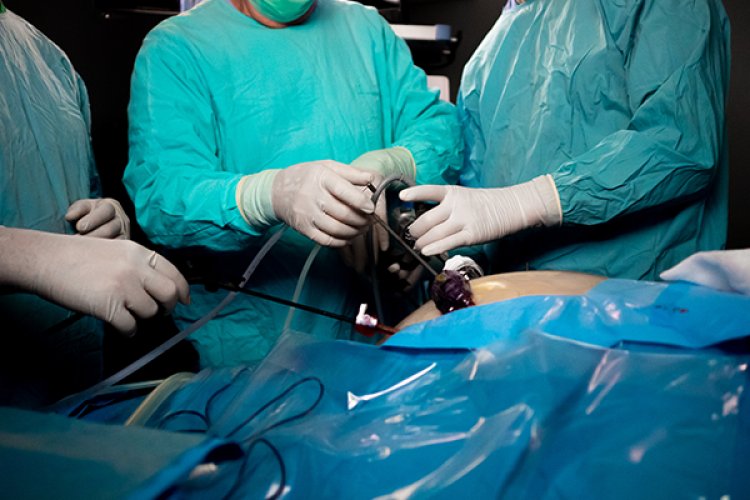Reasons To Choose Laparoscopic Surgery
Although laparoscopic surgery has gone a long way from its beginnings, it is apparent that this is a form of surgery that will continue to evolve and become an increasingly important part of the world's medical services.

Many of you will have heard the phrase laparoscopic surgery at some time in your lives and will have been curious about what is included. The term "surgery" and what it entails will be familiar to most people, but the word "laparoscopic surgery" will be less well understood.
Laparoscopy, often known as minimally invasive surgery, is a medical method that makes tiny incisions to conduct surgery. A laparoscope is inserted via one of the incisions, allowing the surgeon to observe the afflicted region projected onto a television display through the other incision. When doing laparoscopic surgery, the belly is often inflated with carbon dioxide gas or nitrous oxide, most commonly used for abdominal or pelvic surgery.
The primary benefits of using this kind of surgery are that patients will be able to heal much more quickly and that there will be far less scarring left behind.
Laparoscopic surgery has a history that dates back more than a century.
Although many individuals will not have understood much about what laparoscopic surgery is, before now, even many who work in the medical profession will not have recognized how long this kind of surgery has genuinely been around. Even though current laparoscopic surgical devices, such as those from top manufacturers, were not available, laparoscopic surgery was first conducted in the early twentieth century.
What is the success rate of laparoscopic surgery?
Is laparoscopy a safe procedure? Laparoscopy, Laser Hair Removal & Acne Scar Treatment in Jaipur is a relatively safe technique. In addition to being safe, this treatment is done by Laparoscopic Surgeon in Jaipur also allows your healthcare professional to provide an exact diagnosis of your illness. When this procedure is performed on women, around three out of every 1,000 people encounter difficulties.
What medical conditions might it be used to treat?
This is frequently one of the first things that people ask when they first hear about laparoscopic surgery, and it is a topic that can be addressed pretty quickly in most cases. This kind of surgery is well-known for providing relief from a wide range of illnesses that are known to harm our bodies. In today's society, even cancer may be treated with laparoscopic surgery thanks to the fantastic technology that has allowed very advanced laparoscopic surgical devices to be introduced into operations all over the globe. Other disorders that impact our internal organs are treated daily, including various skin problems. Of course, this all necessitates the employment of a highly competent Laparoscopic Surgeon in Jaipur who is adept at using laparoscopic surgical devices with pinpoint accuracy.
Laparoscopy, often known as minimally invasive surgery, is a medical method that makes tiny incisions to conduct surgery. A laparoscope is inserted via one of the incisions, allowing the surgeon to observe the afflicted region projected onto a television display through the other incision. With laparoscopic surgery, which is most often used for abdominal or pelvic surgery, the abdomen is typically inflated with carbon dioxide gas or nitrous oxide to lift the abdominal wall above the internal organs to provide the surgeon with a working and viewing room.
There are several benefits to laparoscopic surgery, including the following:
- Smaller incisions, minor discomfort, a quicker recovery, and less scarring benefit laser surgery.
- Pain is reduced, as is the need for pain medicines.
- The hospital stay is shorter since the operation is often conducted as an outpatient procedure.
- Infection risk has been reduced.
An operation to remove the gall bladder, which is comparable to a bit of balloon that stores and releases bile, is often performed by suctioning out the bitterness and removing the deflated gallbladder via an incision made at the navel.
Is laparoscopy considered to be a major surgery?
Even though patients prefer to think of laparoscopic surgery as minor surgery, it is significant surgery with the possibility of severe consequences such as visceral damage and bleeding, bowel injury, bladder injury, and other organ injury. Laparoscopy has been utilized for bariatric surgery (including gastric sleeve, gastric bypass, and lap band) procedures for many years. Laparoscopic bariatric surgery is the same process as open bariatric surgery and gives outcomes comparable to those of open surgery in terms of excess weight reduction. Although laparoscopic surgery is not always a possibility for all operations, it is something to consider when speaking with your doctor.












